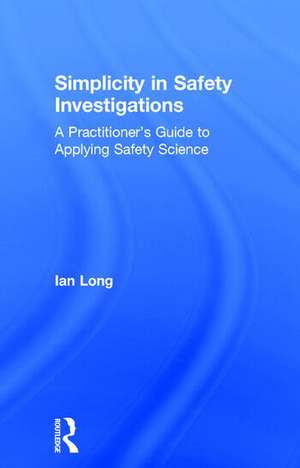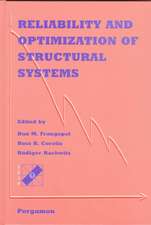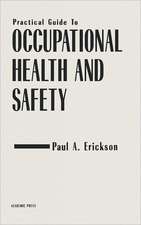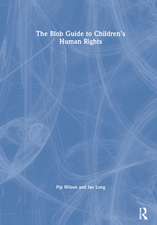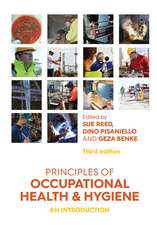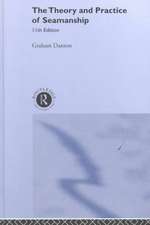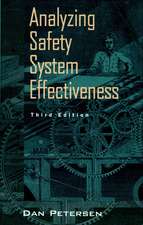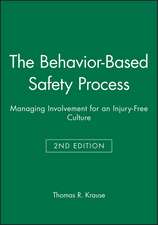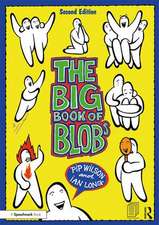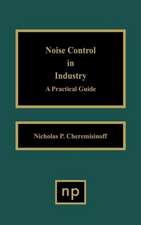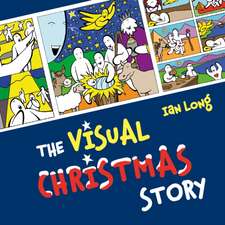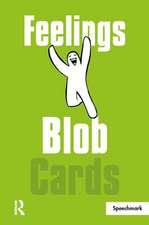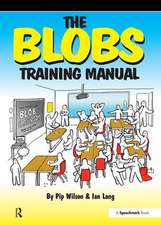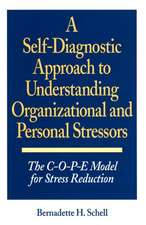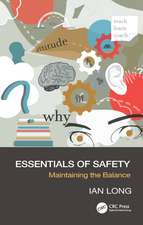Simplicity in Safety Investigations: A Practitioner's Guide to Applying Safety Science
Autor Ian Longen Limba Engleză Hardback – 8 sep 2017
Simplicity in Safety Investigations: A Practitioner's Guide to Applying Safety Science will better equip readers to deal with incident investigations by helping them understand the science behind investigation techniques, and by exploring coaching and leadership styles that help them ask better questions both before and after workplace incidents. The first two chapters of the book focus on our mindset as we approach and undertake investigations, and the simple things we all must do before an investigation starts. The third chapter is a step-by-step guide on how to undertake both simple and more detailed workplace incident investigations. Chapter 4 is reserved for a more detailed review and set of explanations around the science and thinking behind the method and approach.
This book serves as an easy-to-follow, real-world reference for supervisors, managers and safety practitioners across many industries.
| Toate formatele și edițiile | Preț | Express |
|---|---|---|
| Paperback (1) | 293.56 lei 22-36 zile | +12.46 lei 5-11 zile |
| CRC Press – 8 sep 2017 | 293.56 lei 22-36 zile | +12.46 lei 5-11 zile |
| Hardback (1) | 994.74 lei 43-57 zile | |
| CRC Press – 8 sep 2017 | 994.74 lei 43-57 zile |
Preț: 994.74 lei
Preț vechi: 1213.10 lei
-18% Nou
Puncte Express: 1492
Preț estimativ în valută:
190.37€ • 198.01$ • 157.16£
190.37€ • 198.01$ • 157.16£
Carte tipărită la comandă
Livrare economică 14-28 aprilie
Preluare comenzi: 021 569.72.76
Specificații
ISBN-13: 9781138097711
ISBN-10: 1138097713
Pagini: 152
Ilustrații: 10
Dimensiuni: 138 x 216 x 11 mm
Greutate: 0.29 kg
Ediția:1
Editura: CRC Press
Colecția Routledge
ISBN-10: 1138097713
Pagini: 152
Ilustrații: 10
Dimensiuni: 138 x 216 x 11 mm
Greutate: 0.29 kg
Ediția:1
Editura: CRC Press
Colecția Routledge
Public țintă
Academic, Professional, and Professional Practice & DevelopmentCuprins
Acknowledgments
Preface
What level of investigation should we do?
Using this book and the techniques described within it for positive investigations
Some essentials
1 Mindset and approach
2 Before you investigate
Team formation, structure and roles
The art of facilitation and using a coaching style
Your conversations and questions (before and after an event)
3 The investigation process
Scene preservation.
Interviewing (versus taking statements)
Generous listening
The interview conversation
Data and information gathering
How to run an effective and efficient PEEPO
Determining Work-As-Done, Work-As-Normal and Work-As-Intended
Determining Work-As-Done, Work-As-Normal and Work-As-Intended in the case of more detailed incident investigations
Exploration of the gaps between Work-As-Done, Work-As-Normal and Work-As-Intended
Build the story (Incident Pathway Statement)
SMARTS actions
Reports
4 The technical and scientific stuff
Task complexity, procedural complexity and adequacy, and situational complexity
Resilience and resilience engineering
Risk intelligence, risk identification and risk management
Drift (procedural or practical drift)
Internal decision and sense-making
Intense task focus
Answering a different question
What-You-See-Is-All-There-Is (WYSIATI) and plan continuation
Shared Space as it relates To safe work spaces
Effective ‘core competency training’ and ‘awareness induction’
Individual actions and assessments
Systems of work and their interrelationships
It is all obvious when you know the outcome (hindsight bias)
Accountability and authority mismatch
Equipment, tools and plant design
Task planning, assignment, acceptance and monitoring
Leadership
Other cognitive biases and heuristics
The efficiency – thoroughness trade-off (ETTO)
5 Conclusion
Appendices:
A. Interviewing – Having meaningful conversations
B. Incident Cause Analysis Method (ICAM) process
Bibliography and reading list.
Index
Preface
What level of investigation should we do?
Using this book and the techniques described within it for positive investigations
Some essentials
1 Mindset and approach
2 Before you investigate
Team formation, structure and roles
The art of facilitation and using a coaching style
Your conversations and questions (before and after an event)
3 The investigation process
Scene preservation.
Interviewing (versus taking statements)
Generous listening
The interview conversation
Data and information gathering
How to run an effective and efficient PEEPO
Determining Work-As-Done, Work-As-Normal and Work-As-Intended
Determining Work-As-Done, Work-As-Normal and Work-As-Intended in the case of more detailed incident investigations
Exploration of the gaps between Work-As-Done, Work-As-Normal and Work-As-Intended
Build the story (Incident Pathway Statement)
SMARTS actions
Reports
4 The technical and scientific stuff
Task complexity, procedural complexity and adequacy, and situational complexity
Resilience and resilience engineering
Risk intelligence, risk identification and risk management
Drift (procedural or practical drift)
Internal decision and sense-making
Intense task focus
Answering a different question
What-You-See-Is-All-There-Is (WYSIATI) and plan continuation
Shared Space as it relates To safe work spaces
Effective ‘core competency training’ and ‘awareness induction’
Individual actions and assessments
Systems of work and their interrelationships
It is all obvious when you know the outcome (hindsight bias)
Accountability and authority mismatch
Equipment, tools and plant design
Task planning, assignment, acceptance and monitoring
Leadership
Other cognitive biases and heuristics
The efficiency – thoroughness trade-off (ETTO)
5 Conclusion
Appendices:
A. Interviewing – Having meaningful conversations
B. Incident Cause Analysis Method (ICAM) process
Bibliography and reading list.
Index
Recenzii
"This is not a big book, but it packs a lot of ideas into 142 pages. The author, now a consultant but formerly in a senior OSH post at Australian miner and nickel refiner BHP Billiton, has a lot of experience to draw on but he is also clearly well read. One of the strengths of this book is how he harnesses theories from writers such as Todd Conklin and Daniel Kahneman to the service of accident analysis."
Stephen Marriot, IOSH Magazine
Stephen Marriot, IOSH Magazine
Descriere
This innovative book aims to bring the science of safety into a simple and practical approach to investigating workplace incidents, using the ideas of some of the great safety science thinkers of our time. This book serves as an easy-to-follow, real-world reference for supervisors, managers and safety practitioners across many industries.
